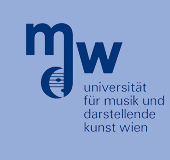Abstract

Vincent Doutaut
The economics of French instrument making are made up almost entirely of very small companies. Up against fierce international competition, they have their place at the top of the concert instrument market: lower quality instruments tend to be manufactured in a more industrial fashion. This is certainly true on a European scale, if not an international one.
Small scale musical instrument production is the result of a long apprenticeship, perfecting the expertise and techniques required at each stage of the musical instrument making process. Traditional instruments are constantly evolving to fit the requirements of musicians and composers (new and old) or as a result of the constraints imposed on the supply of protected materials (CITES convention) such as, for example, some exotic woods (Brazilwood or rosewood, etc.). The use of alternative materials, the modification of structural elements and improvements made to intonation or acoustic instrument radiation is therefore now carried out using scientific tools. Whilst this is a commonly used approach in industrial applications, it is rarely seen in small companies.
The issue, therefore, is to develop tools for use in the workshop that provide musical instrument makers with innovative ways of retaining the advances they make in the quality of their output and help their small companies remain competitive.
How does one respond to the geographical and topical dispersal of craftsmen? The aim of this paper is to set out initiatives taken in France over the last few years to bring together research laboratory instrument makers in a structured and ongoing way to create a common work dynamic.
The "Lutherie tools" project, designed for string instruments (guitars, harps, violins, violas, cellos and bows) offers the free loan of a transfer function measuring device (accelerometers and force sensors and a signal conditioning amplifier) and analysis software. This loan is linked to a year-long individual research project supported by ITEMM and laboratories. The experiences gained by Luthiers and bow makers are shared at annual meetings and enable adjustments to be made to the system’s functionality. Around twenty craftsmen have been taking part in this project to date.
The PAFI project - the instrument making assistance platform - backed by the French national research agency, plans to develop low cost instrument making tools for all instrument makers by 2012. The project’s originality rests on the fact that instrument makers are involved at every stage of development, from defining the specifications to testing the prototypes.

